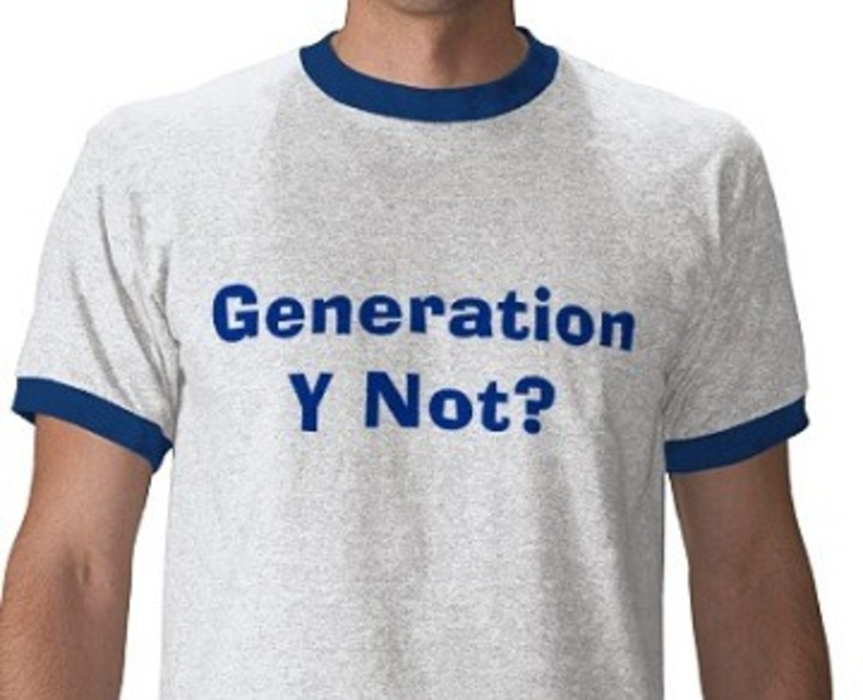Last week, I attended the Share.Like.Buy 2012 millennial marketing conference in New York City. Being a millennial myself (I was born at the end of 1989), I was excited and curious to hear brands’ magic millennial formula for targeting 16-to-34-year olds.
However, as I listened to the speakers, I couldn’t help but scan the crowd and ask myself where are the millennials? There may have been a few speakers who were on the older-side of the millennial age range, but I didn’t see anyone in their late teens or early to mid-twenties. As I listened to the speakers present study after study, I began to feel like I was part of some rare, untapped, millennial species on The Discovery Channel. Look, the millennial approaches the watering hole.
I mentioned the lack of millennials to a member of the Baby Boomer generation, my dad. With a laugh, he guessed that the young millennials probably didn’t speak at the conference because they were still climbing the corporate ladder and weren’t considered high enough to present.
Now, my dad and I don’t see eye to eye on everything—TV, fashion, politics—but I thought he made a wise observation. Upon looking at the “Who Should Attend” section on the Share.Like.Buy 2012 website, I saw that it read, “Brand and agency marketing executives: CEOs, CMOs, VPs, directors, awareness officers, media planners, and social media strategists.” No millennials! If it’s a millennial marketing conference, shouldn’t you have a strong millennial representation? Why not have a panel of millennials ranging in age answer marketers’ questions? If you want to know about millennials, talk to millennials.
As a result, I have decided to shed some light on what I—a real, living, breathing, millennial—wish brands would remember when marketing to people my age.
Millennials are not raking in the dough
Nick Shore, SVP of strategic consumer insights and research for MTV, touched on this point at the conference. He noted that, due to the struggling economy, millennials know they have to hustle. In fact, Shore reported that 55% of surveyed millennials say that their hustle is worth more than their MBA. Millennials are at a point of transition during this age: They’re in college, finding their first jobs, getting married, and starting families. Hence, brands should acknowledge that cash can be a little tight for this demographic and give age-driven discounts or an occasional free product—similarly to how brands offer student discounts or how senior citizens receive discounted movie tickets. It’s appreciating the consumer’s age and where he or she is on life’s timeline.
Millennials want something to brag about
Millennials are competitive, and social media provides a platform for them to exhibit their bragging rights. A student gets into the college of his or her choice—Facebook status update. A girl gets flowers from her boyfriend—picture uploaded onto Instagram. The home team wins the World Series—tweet bashing the losers. Social media provides gateways for people to display their winnings and, Facebook in particular, gives millennials the chance to make their lives appear more glamorous than they might actually be. Just like marketers hope to draw attention to a product and obtain positive feedback, social media users want to draw attention and receive positive feedback on their lives through Facebook “likes” and re-tweets. So, if a marketer is going to target a millennial via social media, he or she must determine the following: What is going to make this millennial want to brag about my product?
Generally, millennials also have their social media channel of choice. For instance, I am addicted to Facebook and Pinterest, but I rarely use Twitter or Foursquare. If a brand tells me to vote for my favorite product via Twitter, I’m not going to participate. Hence, when launching a campaign, marketers should propel their message across multiple social platforms and provide several forms of social engagement to satisfy various social preferences.
Millennials make instantaneous decisions
Everyone is familiar with an elevator pitch—a 30-second spiel used to hook consumers and get them asking more questions. Yet, with millennials, the time frame is even shorter. Millennials want to know what the product is and how it’s going to benefit them right away. It’s just the culture we grew up in. Information has always been just a click away. If a brand can’t answer a millennial’s question, the millennial will take his or her business elsewhere. My brother, 25, and I used to say “patience is a waste of time,” and while it certainly isn’t the most virtuous saying, it does reflect the want-it-now millennial lifestyle. Brands need to make sure that their product information is available in all forms—mobile, in-store, online—so that millennials can access it anytime, anywhere at the drop of a hat. Also, marketers need to get to the point. If I have to watch a video, create an account, and wait for an email confirmation, I’m probably going to lose interest.
Millennials are smart, and I wish the Share.Like.Buy 2012 millennial marketing conference had provided a little more insight from the age group itself. While I didn’t walk away from the conference as inspired as I had hoped, it did reinforce a valuable lesson: The best way to know a consumer is to listen to the consumer.








